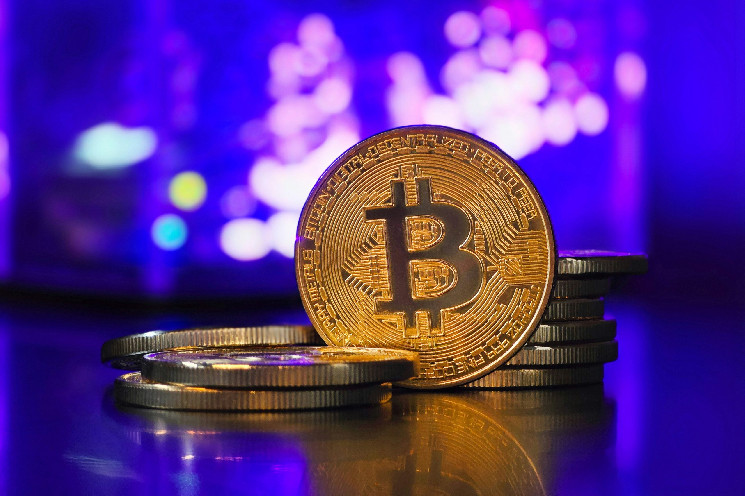Key Takeaways:
Government Bitcoin Holdings: The fact that a government entity like Germany’s Federal Ministry of Finance held Bitcoin signifies increasing institutional interest in cryptocurrencies as part of their asset management strategy.
Impact of Sale: The significant reduction in the wallet size suggests a large-scale transaction, possibly indicating a strategic decision to sell off a portion of their holdings. This move can influence market sentiment and Bitcoin’s price dynamics, reflecting the potential for institutional actions to impact cryptocurrency markets.
Market Perception: The sale underscores how investors and the broader community closely watch government actions in the cryptocurrency space. It highlights the evolving regulatory environment and institutional involvement in cryptocurrencies, which can affect market stability and investor confidence.
Recently, the German government made headlines in the cryptocurrency world by selling Bitcoin (BTC) significantly from its official holdings.
On July 12 2024, according to Arkham blockchain data, the German government announced that it had resumed selling its BTC holdings and executed multiple transactions, transferring 3,200 BTC across various platforms. The transaction substantially reduced the government’s BTC reserves, which dropped to 5,800 BTC.
This move marks a pivotal moment in the intersection of traditional finance and digital currencies, highlighting Germany’s stance and strategy regarding cryptocurrencies. The report suggested that the German government conducted transfers to several prominent crypto exchanges, including Bitsamp, Kraken, and Coinbase, each receiving 400 BTC. Two unidentified addresses received 1,000 BTC and 500 BTC, respectively.
Germany’s Approach to Cryptocurrencies
Germany has been at the forefront of regulatory clarity concerning cryptocurrencies. Unlike some nations that have adopted a doubtful or prohibitive stance, Germany has taken a more nuanced approach, recognising the potential of digital currencies while prioritising regulatory oversight and consumer protection. Selling some of its BTC holdings underscores Germany’s pragmatic approach. By actively managing its crypto assets, the government aims to mitigate risks associated with market volatility while potentially realising gains from strategic sales.
This approach contrasts with the more passive strategies adopted by some other governments, which prefer to hold cryptocurrencies as long-term investments or reserves. Crypto analyst Michaël Van de Poppe shared a post on X speculating that the remaining BTC worth approximately $300 million will be sold on July 12 2024. Historically, significant government sales have often caused market volatility, but distributing BTC across various platforms cautiously could mitigate abrupt and drastic price fluctuations. Since June 19, the German government’s wallet, containing BTC confiscated from a film piracy website seized in January, has transferred significant amounts of BTC, with increased activity observed at the beginning of July.
Implications for the Cryptocurrency Market
The German government’s sale of a significant amount of BTC will likely have ripple effects throughout the crypto market. Here are several key implications:
- Market sentiment and price impact: Large-scale transactions involving BTC by institutional players like governments can influence market sentiment. Depending on the timing and execution of the sale, it could temporarily depress prices if conducted in a manner that floods the market with supply.
- Regulatory precedent: Germany’s transparent handling of its BTC holdings sets a regulatory precedent. Other governments observing this move may consider similar strategies for managing their crypto assets, potentially leading to increased market activity and liquidity.
- Investor confidence: If executed smoothly, the sale could bolster investor confidence in BTC as an asset class. Governments actively engaging with cryptocurrencies in regulated ways may signal a maturing market environment, attracting institutional investors seeking stability and legitimacy.
The German government’s decision to sell a significant portion of its BTC holdings reflects a calculated approach to managing digital assets within a regulatory framework. By reducing its BTC reserves to 5,800 BTC, Germany aims to balance risk and reward in the volatile crypto market. This move showcases Germany’s proactive stance on cryptocurrencies and sets a precedent for other nations grappling with how to incorporate digital assets into their financial strategies.
According to analytics from Arkham, on July 11 2024, the German government’s BTC wallet temporarily fell below 5,000 BTC after transferring $615 million worth of BTC to various crypto exchanges. Joana Cotar, a German lawmaker and advocate for BTC, has criticised the extensive selling of BTC by the government, proposing that crypto could serve as a hedge against risks in the traditional financial system if adopted as a strategic reserve currency instead. The recent drop in BTC’s price is due to several factors, including Germany’s substantial BTC sales and worries about Mt.Gox releasing more than $8 billion worth of BTC to its creditors. These developments have created market uncertainty and downward pressure on prices.
As the cryptocurrency landscape continues to evolve, the impact of government actions, such as Germany’s Bitcoin sales, will be closely monitored by market participants, regulators, and investors worldwide. Whether this signals a broader trend towards government active management of crypto reserves remains to be seen.
Read the full article here

